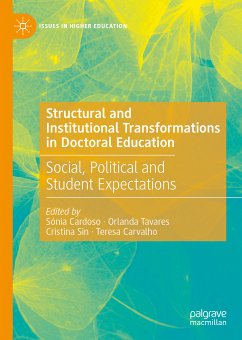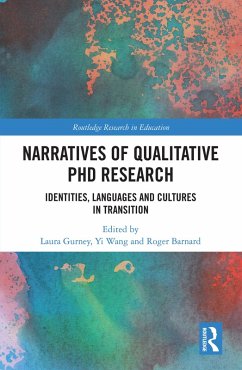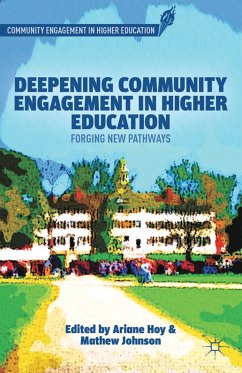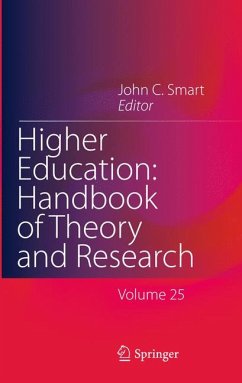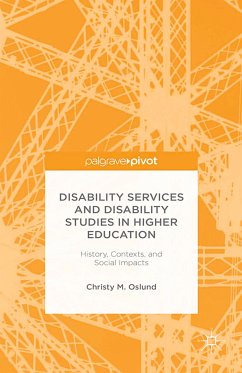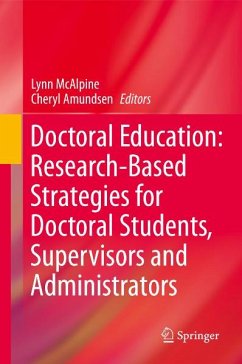
Doctoral Education: Research-Based Strategies for Doctoral Students, Supervisors and Administrators (eBook, PDF)
Versandkostenfrei!
Sofort per Download lieferbar
72,95 €
inkl. MwSt.
Weitere Ausgaben:

PAYBACK Punkte
36 °P sammeln!
The quality of the academics who undertake the work of teaching and research is critical to the significance, status and relevance of our universities. There is widespread evidence that doctoral students are not being properly prepared for the changing face of higher education and that once they take up academic positions, they often experience many frustrations and tensions. This book, based on a four-year-long research program conducted by four academics and four graduate students, investigates the experiences of doctoral students, new academics and senior academics as they engage in their w...
The quality of the academics who undertake the work of teaching and research is critical to the significance, status and relevance of our universities. There is widespread evidence that doctoral students are not being properly prepared for the changing face of higher education and that once they take up academic positions, they often experience many frustrations and tensions. This book, based on a four-year-long research program conducted by four academics and four graduate students, investigates the experiences of doctoral students, new academics and senior academics as they engage in their work related to doctoral education.
Doctoral Education: Research-Based Strategies for Doctoral Students, Supervisors and Administrators offers research-based strategies for improving doctoral education in a non-technical and conversational way. Those strategies include learning to be a new supervisor alongside other academic work, developing an intellectual network during the doctoral journey, giving and receiving feedback on scholarly writing, and preparing for the oral defence. Also, based on research evidence, the book challenges taken-for-granted practices and policies surrounding doctoral education, including the gendered nature of disciplinary practices, the paradox of writing in doctoral education and the public oversight of more and more aspects of academic work.
Intended for doctoral students, academics, staff and administrators, this book provides several perspectives on the topic of doctoral education and contains the actual voices of doctoral students and new academics to illustrate its discussion.
Doctoral Education: Research-Based Strategies for Doctoral Students, Supervisors and Administrators offers research-based strategies for improving doctoral education in a non-technical and conversational way. Those strategies include learning to be a new supervisor alongside other academic work, developing an intellectual network during the doctoral journey, giving and receiving feedback on scholarly writing, and preparing for the oral defence. Also, based on research evidence, the book challenges taken-for-granted practices and policies surrounding doctoral education, including the gendered nature of disciplinary practices, the paradox of writing in doctoral education and the public oversight of more and more aspects of academic work.
Intended for doctoral students, academics, staff and administrators, this book provides several perspectives on the topic of doctoral education and contains the actual voices of doctoral students and new academics to illustrate its discussion.
Dieser Download kann aus rechtlichen Gründen nur mit Rechnungsadresse in A, B, BG, CY, CZ, D, DK, EW, E, FIN, F, GR, HR, H, IRL, I, LT, L, LR, M, NL, PL, P, R, S, SLO, SK ausgeliefert werden.




